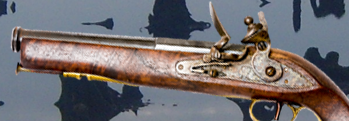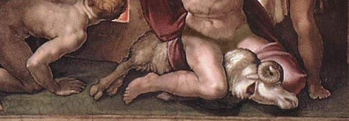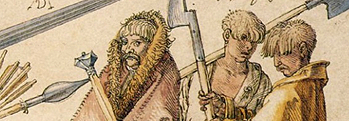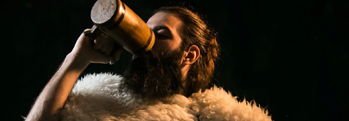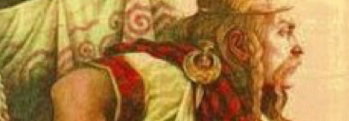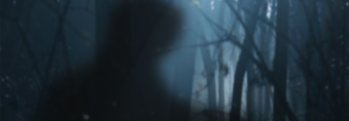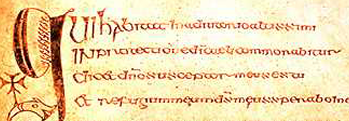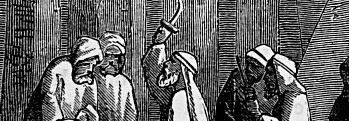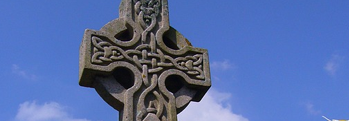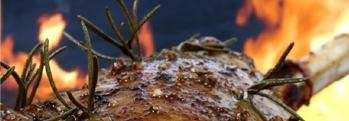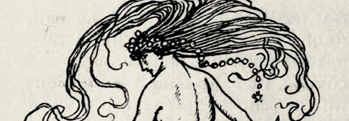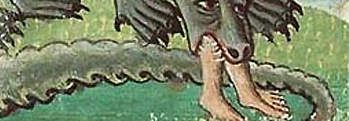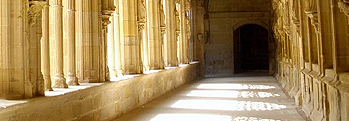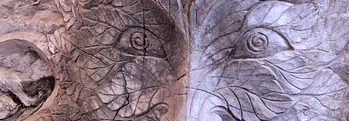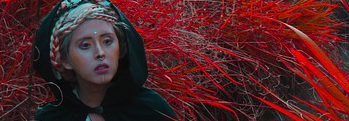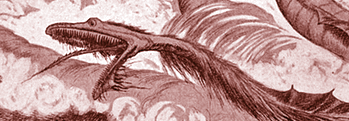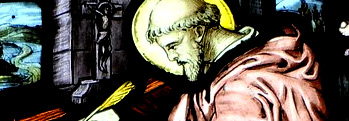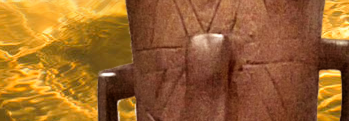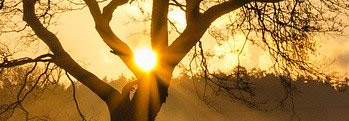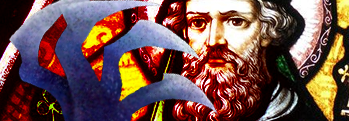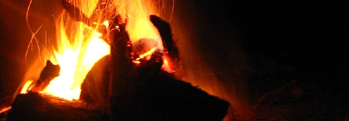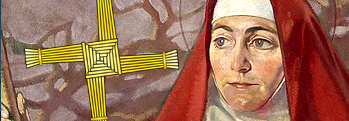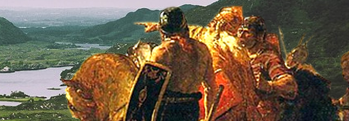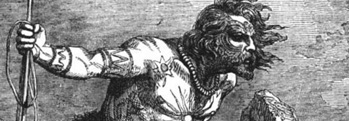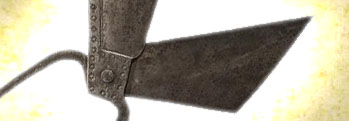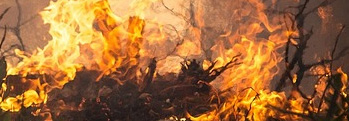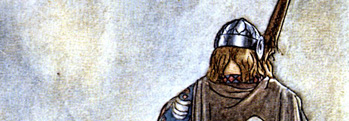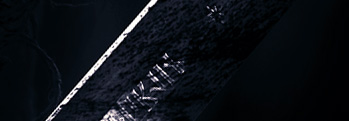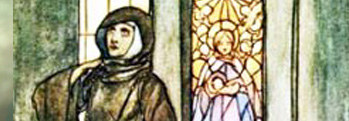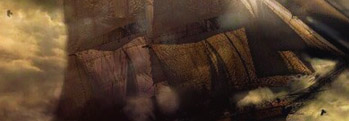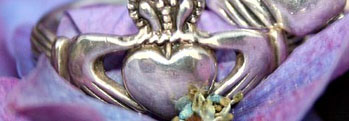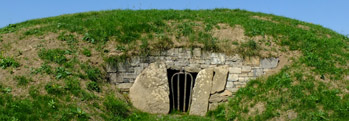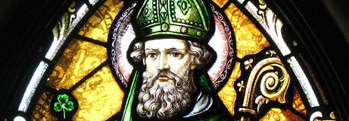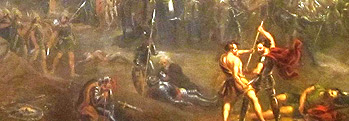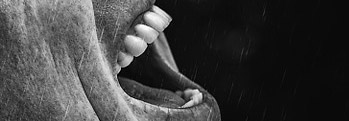The Vengeance of Mesegdra
Irish and Celtic myths and legends, Irish folklore and Irish fairy tales from the Historical Cycle
The Fearsome Vengeance of Mesegdra
Back in the days of old Ireland when legends walked the earth, before the light drove back the shadows of ancient aeons, the word of a bard was much feared, for the people had no writing, so all of their culture and histories were held in songs and poems by bardic masters.
As you can imagine even the mightiest were wary of getting on the wrong side of a bard, for their good name could be blackened for all time by cunning satire and mocking memorial verse! One of the craftiest bards was called Atharna, also known as the Extortioner, because he'd lash any who didn't give him his due with vicious poetry and sullied reputations.
Once even it was said he came to the chieftain Eochaí and demanded his one eye for a payment, and the chieftain plucked it out, much to Atharna's disappointment, for he'd hoped the chieftain would give him a fine fat ransom instead.
Conor mac Nessa was the King in the North in those days, and his power grew strong. Many were his warriors and lacking his diplomacy, except in matters where he could take and give nothing in return. Above all other places, on the eastern lands were their eyes fixed, the rich rolling fields of Leinster.
King Conor brooded long and for many nights into his mead cups about how best to take his share of that wealth, until finally he decided he'd drop two birds with the one stone by sending Atharna to pester them, and then invade as revenge after they'd had enough of his leave-taking and insolent ways.
So Atharna set out with his caravan of poets and harpers, musicians and performers, and came to the Dún of Mesegdra who was King in Naas. For a full year he stayed, wasting their food and taking his measure and the measure of ten more of their drink, availing himself of their hospitality in grand style, so Mesegdra's temper was already delicate when the bold bard came at last to demand his due.
“And what will you have, Atharna?” asked King Mesegdra.
“One hundred and ten cattle, the same in sheep, my own weight in gold and thrice that in fine garments, and forty five of your fairest maidens to work in my fort.”
Without a blink or a wink, King Mesegdra agreed to his terms, which made Atharna mighty fearful. For he knew the men of Leinster weren't the sort to meekly hand over such a weighty toll, and he suspected they'd follow him and murder him once he left their lands, as it was considered a great crime to kill guests on your own soil.
He whispered in the ear of a starling and told the bird to bring him Conor mac Nessa for his safe passage from the border of the eastlands. Leisurely he left the halls of Dún Mesegdra and took his sweet time going back north, giving Conor plenty of opportunity to raise a muster, and sure enough he was met at the border by Conor and a force of men, his thrice fifteen women in tow.
 But then from the darkling border forest burst King Mesegdra and a great host! And they fell on the Northmen with flashing blades and venomous oaths. Pitiless was the battle which followed, and Conor got the worst of it, so they fled to a nearby peninsula and walled it off with wattle and thorns, sending that same starling winging back to Emain Macha to seek help.
But then from the darkling border forest burst King Mesegdra and a great host! And they fell on the Northmen with flashing blades and venomous oaths. Pitiless was the battle which followed, and Conor got the worst of it, so they fled to a nearby peninsula and walled it off with wattle and thorns, sending that same starling winging back to Emain Macha to seek help.
Conall of the Victories it was who heard the call in the north, and he marched as fleet as a springing deer to save his king. When he came to the sea cape of Ben Edar where the hard fighting was taking place, he struck the men of Leinster from behind like a wave tearing at a sand-house, and scattered them.
King Mesegdra was hard put to escape, but he managed to make his way to the fords of Liffey at Clane, where stood a sacred oak, beloved by the druids. None could spill blood under its boughs, for fear of the wrath of the Sidhe, so there Mesegdra rested, for he had lost a hand in the battle before.
Conall tracked him down and wheeled his chariot around the tree, shouting insults and raining his contempt upon the wounded king. But Mesegdra asked him
“Is it the way among the men of the north to challenge crippled men with one arm to battle?”
So Conall had his charioteer bind up his arm and again sang out his challenge. Mesegdra pulled out his sword and they set to it, until by chance he happened to cut the bonds holding Conall's arm in place.
“It's on your own head,” he said, “if you do that again!”
So he had his arm bound again, and they did furious battle, but again, Mesegdra managed to slip and cut the bonds holding Conall's arm, so Conall rushed on him and cut his head from his shoulders.
He took the head and Mesegdra's chariot and made his way back home, but along the way he met a woman of passing fairness.
“Who might you be, woman?” said Conall.
“I am Buan, wife of Mesgedra the King.”
“You'll come with me,” then said Conall.
“Who commands this?” said Buan.
“Mesgedra the King,” said Conall.
“And who are you to speak in his name?”
“Behold his chariot and his horses,” said Conall.
“He gives rich gifts to many a man,” answered the Queen.
Then Conall showed her the head of her husband.
“This is my token,” said he.
“It is enough,” said Buan. “but give me leave to keen him before I go into captivity.”
Then Buan rose up in her chariot and raised for Mesgedra a wail of sorrow so loud and piercing that her heart broke with it, and she fell backwards on the road and died. Conall buried her there and her husband's head beside her, and from that spot grew a fair hazel tree called Coill Buana.
Before he put the head beneath the cairn though, he scooped out the brains and mixed them with lime to make a stone for his sling, as was the custom when a mighty warrior or king had died in those days. Such brain-balls were said to be deadlier than any other.
Years later the Wolf of the West, a man from Connacht called Ket, disguised himself and went into the north to seek knowledge of these fearsome warriors, and he came to the halls of Conor in Emain Macha. He spied two children kicking around the brain-ball after they'd taken it from a shelf, and knew what it was, so he distracted the children and made off with it.
Shortly after he mustered a great force of Connachtmen and raided the north without mercy, carrying off many cattle and riches, so Conor gave chase with his own army. The women of Connacht, being unafraid and fierce, wanted to watch the fight, so they gathered nearby.
Conor thought he'd impress the ladies with the splendour of his chariot and armour, so he rode near and saluted them, but Ket was waiting in the bushes close at hand, and rose up, slinging the brain-ball straight at Conor's head!
Right into his temple it sang, and dropped him like a stone himself. The men of the north let out a wail and carried Conor off, sure he was done for, but after he returned to Emain Macha his physician Fingen found him yet alive. The brain-ball however was half stuck in his own brain.
“If that comes out his life will come out with it,” said Fingen, “but if we leave it in he'll look a little strange”.
“Sooner strange than dead,” said the lords of the north, and so Fingen stitched over it with gold thread the colour of Conor's hair, and told Conor not to move too quickly, to stay off horseback, and to avoid dancing.
For seven years Conor lived like that, and there was peace across Ireland, for he couldn't go to war or do anything which might inflame his passions, until one day the sun darkened at noon, and the people were fearful as it seemed they could see phantoms of long gone relatives and enemies walking about the countryside shouting without sound. The sacred wells in the land lit up with a wild light and the Sidhe whirled in a mad magical wind, dashing to and fro as if neither this place nor that was good enough for hiding.
Conor called to his chief druid, who was called Bacarach, and asked him what was the cause of all this. The druid went to a sacred grove of oaks, now turned brown, and went into a deep trance. He spoke then to Conor, and this is what he said:
“I see a hill near a city of gold like the sun, and on it three men are bound and nailed to crosses, side by side. The young man in the middle is as one of the immortals, but around him stand soldiers from a city of stone which is white as the moon, clad in red and iron, carrying tall spears, and a crowd gathers to see him die.”
“Is he then a criminal?”
“No,” intoned the druid, “but holiness, innocence and truth have come to the earth in him, the end of the old shadows, and for this have his own druids caused him to be killed, for their teachings were not the same as his. And the heavens are darkened with sorrow at the sight.”
Then Conor leaped to his feet in a fury, drawing his sword and holding it high, crying out:
“They won't kill him, it shall not be so! If I was there with a force of my northmen I'd cut them down and hear their weeping, like this!”
And he started to hack and hew at the trees about. So great were his exertions that the sling-ball burst right out of his head, and he fell down dead. And so was Mesgedra avenged upon his killer, Conor mac Nessa, King of Ulster.
Naas where Mesgedra once held court is marked on the map below!
More Tales from the Historical Cycle
Ireland is full of strange little corners and odd byways that only a few know about, and one such is a mysterious place called the Gearagh, or An Gaorthadh, meaning the wooded river bed, in County Cork. Once it was part of the first forests in Ireland, home to verdant giants that grew after the great ice melted away, but now all that remains is a s ... [more]
Ireland at the beginning of the first millenium was a turbulent place, with many clans and kingdoms fighting among themselves, so that a Lord might be sitting comfortably one day but find himself fleeing for his life the next! And so it was with one of the greatest of Ireland's kings, Cormac Mac Art. Although he was by blood, law and custom ... [more]
On Martinmas eve, that is to say the 10th of November, it used to be the custom in many parts of Ireland to sacrifice an animal to Saint Martin of Tours! This tradition has only recently ceased, having been carried on well into living memory, as lately as the 1940s in some places. In poorer homes a goose, gander, duck or chicken was killed, whil ... [more]
It's true to say that music has a magic all to itself, for it can transport us to different places and times with the strumming of a few notes. It can make us feel angry, or sad, or happy, or any one of a myriad of other emotions. But if you were to hear the music of an occult Sidhe instrument played by one of the fairy folk under a loon's ... [more]
King Cormac Mac Airt was one of the mightiest kings of Ireland, known and well known for his wisdom, but after he lost an eye in a battle with the Déisi, he had to step down, for the solemn law was that a king must be without blemish. His son Cairbre came to him to ask his advice before in turn being crowned king. “O Cormac, grandso ... [more]
"Crom Cruach and his sub-gods twelve," Said Cormac "are but carven treene; The axe that made them, haft or helve, Had worthier of our worship been. "But He who made the tree to grow, And hid in earth the iron-stone, And made the man with mind to know The axe's use, is God alone." Anon to priests of Crom was ... [more]
Most people with an interest in Irish mythology and legends will have heard of the great tale of the Táin Bó Cúailnge, which tells of the heroic deeds of Cú Chulainn as he resisted and gave battle single handed to the armies of Queen Medb. What most don't know is that the ancient tale was once all but lost, for th ... [more]
One of the most legended and powerful relics of ancient Ireland was the Cathach, or battle-book of St Colmcille, who was also known as St Columba. A Cathach was really any sort of sacred or magical artifact, and great was the strife between the tribes and clans of Ireland to gain ownership of them! The psalter or prayer book of Saint Colmcille w ... [more]
Three was a sacred number to the people of ancient Ireland, bearing with it a hint of magic and the sacred, and this belief carried through to their spiritual practices, which occasionally included human sacrifice! Most cultures throughout history have at one point or another practised some form of human sacrifice, and lurid tales passed down fr ... [more]
Saint Colman was a famous Saint in early Irish Christianity, being born a prince not long after Saint Patrick brought the faith to Ireland in the first place. Despite his royal lineage however, his birth was no easy matter, for the druids had prophecised darkly that he would be a great man and surpass all others of his clan! His pregnant mother ... [more]
The old pagan times in Ireland were fraught with peril for even the mightiest warriors, with chieftains and tribes going to war often and for many reasons – pride, hatred, love and greed! And so it was with the fierce King Conall Collomrach. Little is known of his exploits, but his reign was brief and his end was violent, leaving behind only ... [more]
This now is the true tale of mighty King Cathal Mac Finguine of Munster, lord of Cork and warrior without peer. In ancient Ireland this story was told when mead was first brought out, or a prince sat to his feast, or when an inheritance was taken, and the reward for reciting this story was a white-spotted, red-eared cow, a shirt of new linen, or a ... [more]
The river in Meath which we today know as the Delvin, that very same river which flows into the Irish sea in Gormanstown, was not always called so. In the time of Kings it was called Inbher Oillbine, and this is the grim story of how it got that name. There was a prince who lived near to the mouth of the river, and his name was Ruadh Mac Righdui ... [more]
The boy who was to be Saint Colman was born in the northern kingdom of Dalriada, which held both Northern Ireland and Scotland in its power at the start of the sixth century. This was the time of the dawn of Christianity in Ireland, and it was a time when great terrors and monsters from primordial epochs still swam in the deep lakes and lazy rivers ... [more]
Most people have heard of Ireland's famous title, “The Island of Saints and Scholars”, and the reason it was so well known was because of the many fine Irish Catholic universities and colleges that preserved and spread learning throughout Europe. Of them all, there were few finer than the one in Howth, and so wonderful was its reput ... [more]
Very often here in Ireland we walk past the most astonishing buildings, carven stone high crosses, ancient temples and many similar things, but rarely do we wonder who built them. Well as it turns out, legend has it that a surprising number of them were built by a man called Gobán Saor, whose name means “Gobán the Builder,&rdquo ... [more]
I. Once upon a time there was a High King in Ireland by the name of Conn the hundred-fighter, for so many battles had he fought and won to gain his kingship. At the end of his reign was Fionn Mac Cumhaill born. Long was Conn's lineage, although I won't trouble you with the details, but he reigned at Tara of the Kings as Lord of all Irela ... [more]
In the time of High King Lugaid Luaigne, that is around the age when Fionn Mac Cumhaill and his Fianna fought in defence of the great land of Ireland, a dispute arose in the northern Kingdom among the men of the Ulaid, for instead of there being only one king of Ulster, there were two! Well, as anyone who knows anything about kings will tell you ... [more]
St Colmcille is one of the three patron saints of Ireland, and his life is the subject of story and legend. It was by his efforts that Christianity spread not only through Ireland but also Scotland, England and parts of Europe too! He was a tall and powerfully built man with a rich and melodious voice which, it was said, could be heard from one hil ... [more]
From the earliest times and in every corner of the world, mead was held in reverence. This sweet tasting fermented honey drink was especially loved by the ancient Irish, who shared fireside stories about rivers of mead in mystical lands over the edge of the ocean's horizon, ruled by Mannanan Mac Lír, and even in the place where the dead ... [more]
Ancient are the hills and mountains of Ireland, and ancient are her trees, something that the old people who lived here knew well. To them a tree was a mystical thing with its roots reaching down into the underworld of the sidhe mounds, and its branches lifting up high into the heavens towards the sun, moon and stars. Well over ten thousand places ... [more]
The Irish bee has been a beloved part of the culture and folklore as long as there have been people in Ireland, producing honey for cakes and mead as well as beeswax which has no end of uses. Many's the warm summer evening has been filled with their gentle humming above the beautiful flowers they help to pollinate. And yet for all that, old ... [more]
As Saint Patrick travelled across Ireland, spreading Christianity and the light among the pagan tribes, he saw many wonders and defeated many evils, but always more rose up to challenge him. So he took himself to prayer and saw a vision that he should travel to Croagh Patrick – although it was not so known at that time – and spend the L ... [more]
The shifting shadows of pagan times held sway over Ireland when the High King was a man known as Laoghaire, famed for his merciless fury and great strength, and he sat upon the seat of the High Kings in Tara. But unknown to him, Saint Patrick had landed in a little boat at Colpe in the Boyne estuary, travelling to a place called Ferta fer Feic, or ... [more]
One of the three patron Saints of Ireland, along with Patrick and Colmcille, St Brigid of Kildare was a devout Catholic in the very first days of the faith in Ireland. Her feast day is the first of February, which previously had been the pagan festival of Imbolc, halfway between winter and spring. Brigid herself was the daughter of a baptised Ch ... [more]
Through many an ancient legend and tale rings the name of the fierce and powerful druid called Mogh Ruith, meaning “slave of the wheel”. Older legends make him out to be the king of the Fir Bolg, or a druid gifted with many lives by the fairies, or that the name was but a title passed down through generations. Some say he had one eye ... [more]
Ireland has had many high kings, some were wise and kind and others cruel and the holders of grudges, but there were few as great as High King Cormac Mac Art, grandson of Conn of the Hundred Battles and son of Art and Ectach, the daughter of a mighty blacksmith. In his youth he stayed at the hall of the king of the north, Fergus Dubhdedach, but ... [more]
Back in the days of old Ireland when legends walked the earth, before the light drove back the shadows of ancient aeons, the word of a bard was much feared, for the people had no writing, so all of their culture and histories were held in songs and poems by bardic masters. As you can imagine even the mightiest were wary of getting on the wrong s ... [more]
In ancient days there was an Irish King whose name was Labraid Lioseach, known also as Labraid the Sailor for a long voyage he took into fairy seas, and when he came back from that voyage he was never seen without a deep hood over his head, except by one man. That man saw him once a year to trim his hair, and after the King's hair was cut, t ... [more]
It was the custom in Ireland of old to lay geases upon champions, heroes and warriors. These were magical forbiddings, deeds they must not do or disaster would follow, and no disaster fell so hard upon a man who broke his geases as upon Conaire Mor! His mother was a woman of the Sidhe called Etain, who had been married to King Eochaid, but disco ... [more]
Tierna the Historian was one of the many chroniclers and monks who wrote the tales of ancient Irish legends, telling us of strange and notable events in the almost forgotten past, the deeds of heroes and kings, and in one case, the disappearance of the High king himself! For it was by Tierna's hand we know that High King Cormac went missing for ... [more]
In the time between the Tuatha Princes and St Patrick, there rose over the people of Ireland mighty High Kings, who held power by force of arms, wit and wisdom. One of the greatest among them was Cormac of the wide purple cloak, whose hair was as golden as the heavy torc around his neck, with teeth like a shower of pearls and skin as fair as snow. ... [more]
Long ago when the fierce Milesians invaded Ireland and defeated the De Danann after many wars and battles, despite their sorceries and all their courage, skill and sciences, the folk of Danann made for themselves eldritch amulets and charms by which they and all their possessions became invisible to mortals, and so they continued to lead their old ... [more]
The Tailteann games were a grand affair in Ireland once upon a time, every bit as celebrated and renowned as the Olympics are today. Having their roots thousands of years earlier, in the time of the Tuatha Dé Danann, lakes were made and gigantic fires were lit during Lughnasadh, the summer feast in July. Druids and poets would compose cea ... [more]
The Claddagh Ring is one of those well known emblems of Ireland that most people recognise, but how many know the stories behind it? Many's the young man has gifted one to his lady, giving his heart along with it, as did the ring's original maker. Back in the seventeenth century there was a young Irish lad by the name of Richard Joyce, w ... [more]
Ah Tara, Temair of old, seat of more than a hundred High Kings of Ireland for better than a thousand years, home to the royal lines of Cormac and Tuathal, where is your wisdom and beauty? Where are the mighty warriors and poets who once danced in your halls? Why now do cattle and livestock graze where the mighty Fionn faced the Tuatha sidhe with a ... [more]
On Easter Sunday morning, in anno domine 433 it was that Patrick came face to face with the beating heart of the old religion at Tara, and did battle with the Druids. Although some might dispute the miraculous nature of the events that took place on that day, few argue they didn't happen, so take from that what you will! Laeghaire the king a ... [more]
Brian Boru was one of the greatest High Kings of all Ireland, a Christian king whose small dynasty challenged and broke even the power of the O'Neills, who had ruled Ireland from time immemorial. He rose to prominence at a time when the cruel Norseman was pillaging the lands of both Ireland and England, slaughtering and slave-taking, barbarians ... [more]
King Suibhne was master of the northern land of Dalriada in Ulster, and a grim and fierce king he was too, yet fair to behold like palest snow, with deep blue eyes. A mighty master at arms, he was called to war often, but latterly to the bloody battle of Moy Rath. As he readied himself he heard in the distance a church bell ringing, and no man of G ... [more]




